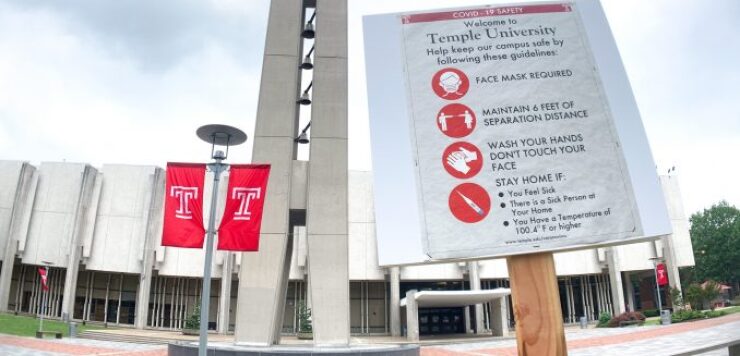Many colleges looking to save on debt service have turned to taxable refundings, with Temple University planning a $177.5 million taxable negotiated bond sale this week, but one credit analyst said a coronavirus-related drop in enrollment could force others to delay.
With interest rates at historic lows, higher-rated colleges have taken advantage by refinancing debt, said S&P credit analyst Jessica Goldman. And while she expects more higher education taxable deals to follow in 2020, potential steep enrollment losses this fall may prompt some schools to rethink near-term borrowing.
"Rates are low, so some schools may want to take advantage of that for debt savings,” Goldman said. “There is still a lot of uncertainty though.”
However, she said, "markets have opened up and we have seen demand for higher education bonds and we expect that to continue."

The Philadelphia-based public research university is scheduled to sell $177.5 million of taxable bonds and use proceeds to advance refund all or a portion of $200 million in tax-exempt debt it sold in 2012 through the Pennsylvania Higher Educational Facilities Authority. Temple CFO Ken Kaiser said the taxable transaction was planned because the Tax Cuts and Jobs Act, approved by Congress in December 2017, axed tax-exempt refundings.
“It is largely driven by the federal tax changes related to tax-exempt advanced refundings,” Kaiser said. “The lower rate environment is a driver as well.”
Kaiser said the deal was in the works long before COVID-19 caused fiscal obstacles at Temple and other U.S. colleges that were forced to shift from an in-person to a virtual learning model in March, prompting partial refunds for housing and tuition costs. Moody’s Investors Service and S&P both noted Temple has enough reserves to withstand negative hits to revenues in the spring and fall semesters.
“Our expectation is that they will be able to achieve another surplus in fiscal 2020 despite the challenges,” Goldman said. “That is due in part to the actions they have taken with reducing expenses and non-essential staff.”
Kaiser said Temple has around $169 million in principal owed on the 2012 bonds and $114 million of future interest payments. Temple, which last entered the bond market with a $79.8 million refunding sale in January 2016, will have roughly $613 million of debt outstanding following the transaction, according to Kaiser. The university has no other borrowing plans for the next two years.
Bank of America will lead the Temple offering as senior manager, with Citi and Loop Capital acting as co-managers. Public Financial Management is financial advisor and Stevens & Lee is bond counsel.
Moody’s and S&P rated the deal Aa3 and A-plus, respectively. Both assigned a stable outlook.
Temple is planning a hybrid model this fall with a return to in-person instruction and larger classes held online. The university also plans to ramp up its COVID-19 testing and contract tracing capabilities.
Temple was founded as a private institution in 1884 and converted into a state-related university in 1965. The nearly 40,000-student school received only 9% of its 2019 operating revenues from state appropriations, according to Goldman.





